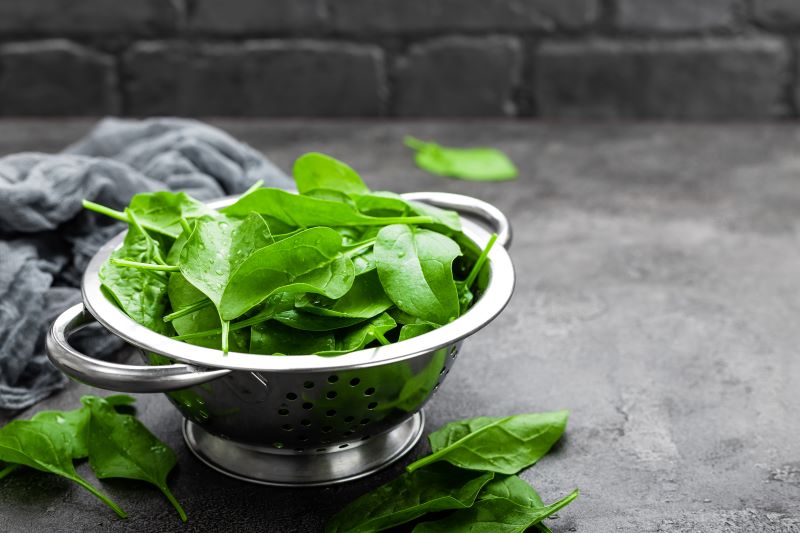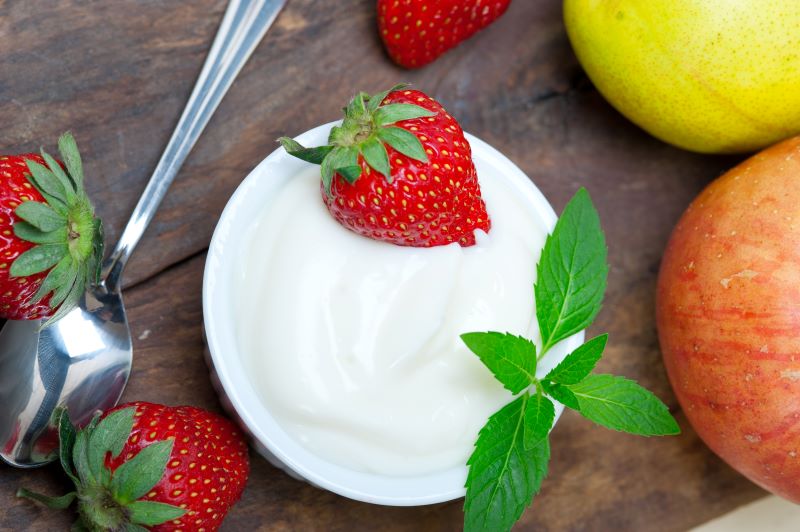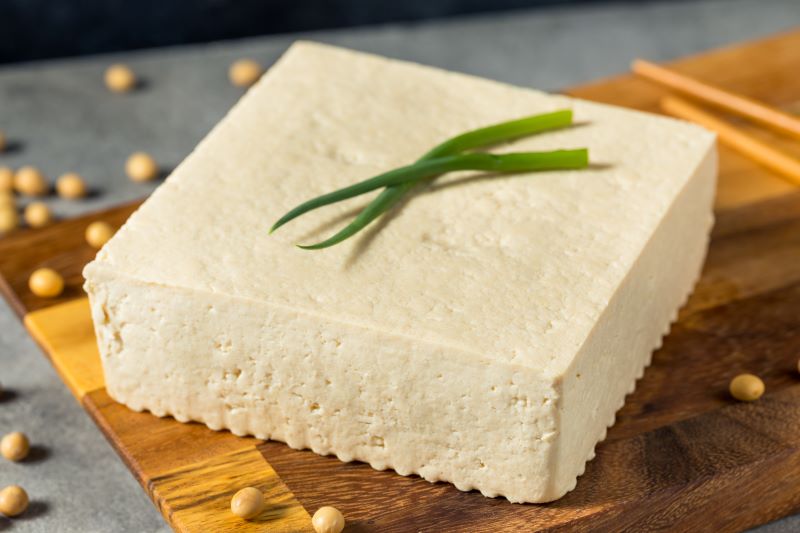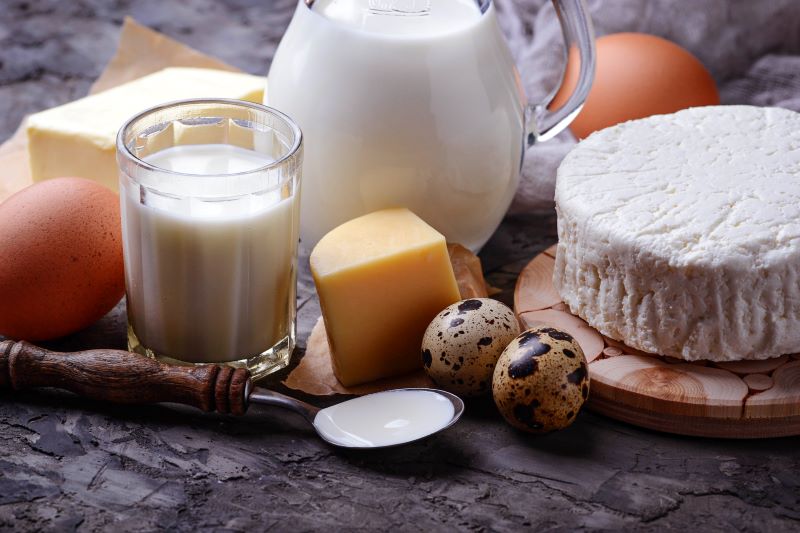28 Best Foods for Strengthening Bones & Muscles

The optimisation of bone structure is pivotal for successful recovery and general health. These 28 foods contain vital nutrients necessary to uphold strong and protective bone structure. Contrary to popular belief, calcium is not the only vital element for bone strength. It is found in dairy products like yoghurt and cheese.
Some of these nutrient-rich foods can be incorporated into your diet. Contributing to stronger and denser bones and faster healing of injuries now and in the future. Among the above foods, priority should be given to improving bone health so that bone can recover faster after the injury.

Table of Contents

What are the Functions of Bones in Our Body?
Bones serve crucial roles in the human body's structure and function. They provide support and stability for the body, enabling movement and maintaining posture. Additionally, bones protect vital organs such as the brain, heart, and lungs from injury and damage.
Bones are a storehouse for minerals like calcium and phosphorus, essential for various bodily functions. They also produce red and white blood cells in the bone marrow, vital for immunity and oxygen transport. Furthermore, bones play a role in regulating mineral balance and acid-base equilibrium in the body.
28 Best Foods for Bones
Foods rich in calcium, vitamin D, and phosphorus support bone health. Dark leafy greens provide calcium and other essential bone-building nutrients, and dairy products offer calcium, protein, and vitamin D, which are crucial for bones.
Fatty fish like salmon supply vitamin D and omega-3 fatty acids. Nuts and seeds contain magnesium, zinc, and other bone-strengthening minerals. Fortified foods like cereals and plant-based milk alternatives boost bone health.
Nevertheless, here are some food suggestions to add to the diet for Bones and their nutritional values:
List of Calcium-Rich Vegetables for Bones

Various vegetables are excellent sources of calcium, which is crucial for bone health. These vegetables provide essential nutrients for maintaining strong and healthy bones. Including a variety of calcium-rich vegetables in your diet supports bone density.
SNo. |
Vegetables | Description | Calcium Content (per 100 g) |
| 1 | Spinach | High in calcium and vitamin K. | 99 mg |
| 2 | Collard Greens | Rich in calcium, vitamin K, and antioxidants. | 232 mg |
| 3 | Kale | Packed with calcium, vitamin K, and antioxidants. | 254 mg |
| 4 | Bok Choy | Contains calcium and vitamins A, C, and K. | 105 mg |
| 5 | Broccoli | Good source of calcium and vitamin C. | 47 mg |
List of Calcium-Rich Fruits for Bones

Numerous fruits and juices are abundant sources of calcium for bone health. Incorporating them into your diet can strengthen bones and support overall health. These calcium-rich options provide essential nutrients vital for maintaining strong bones.
SNo. |
Fruits | Description | Calcium Content (per 100 g) |
| 6 | Grapes | Grape is a crisp and juicy fruit known for its high-fibre content. | 2.4 g |
| 7 | Oranges | High in vitamin C, antioxidants, and fibre. | 40 mg |
| 8 | Figs | Rich in fibre, potassium, and antioxidants. | 35 mg |
| 9 | Apricots (dried) | Contains vitamins A and C, and dietary fibre. | 55 mg |
| 10 | Kiwi | Packed with vitamin C, vitamin K, and fibre. | 34 mg |
| 11 | Blackberries | Rich in antioxidants, vitamins, and fibre. | 29 mg |
List of Dairy Products and Nuts for Bones

Calcium-rich dairy products are essential for maintaining strong and healthy bones. Nuts are also a good source of calcium, contributing to bone health. Incorporating these foods into your diet can help prevent osteoporosis.
SNo. |
Dairy Products and Nuts | Description | Calcium Content (per 100 g) |
| 12 | Yoghurt | Rich in probiotics and protein, it supports bone health. | 121 mg |
| 13 | Cheese | High in protein and calcium, aids in bone strength. | 721 mg |
| 14 | Milk | Excellent source of calcium and vitamin D. | 125 mg |
| 15 | Almonds | Packed with protein, healthy fats, and calcium. | 264 mg |
| 16 | Hazelnuts | High in fibre, healthy fats, and calcium. | 114 mg |
List of Calcium-Rich Vegetarian Food for Bones

Vegetarians can obtain ample calcium from various plant-based sources for bone health. Incorporating a diverse range of calcium-rich vegetarian options ensures optimal bone health.
SNo. |
Food | Description | Calcium Content (per 100 g) |
| 17 | Tofu | Versatile soy products are high in protein and minerals. | 350 mg |
| 18 | Soya Beans | Young soybeans are rich in protein and calcium. | 63 mg |
| 19 | Collard Greens | Leafy greens loaded with calcium and vitamin K. | 232 mg |
| 20 | Bok Choy | It is a nutrient-dense Chinese cabbage with high calcium levels. | 105 mg |
| 21 | Fortified Plant Milk | Plant-based milk enriched with calcium. | Varies (typically 120-300 mg) |
List of Non-Vegetarian Foods for Bones

Non-vegetarian foods offer abundant calcium, which is vital for bone health maintenance. Incorporating these foods into your diet can help strengthen bones effectively. From seafood to poultry, these calcium-rich options support optimal bone density.
SNo. |
Food |
Description |
Calcium Content (per 100 g) |
22 |
Sardines |
High in omega-3 fatty acids and vitamin D. |
382 mg |
23 |
Canned Salmon |
Rich in protein, omega-3, and vitamin D. |
277 mg |
24 |
Canned Tuna |
Good source of protein and vitamin D. |
13 mg |
25 |
Shrimp |
Low in fat and calories, with some calcium. |
98 mg |
26 |
Mackerel |
High in omega-3 fatty acids and vitamin D. |
684 mg |
27 |
Anchovies |
Packed with protein and omega-3 fatty acids. |
147 mg |
28 |
Crab |
Rich in protein, low in fat, with some calcium. |
118 mg |
Causes of Weak Bones
Several factors contribute to weak bones, leading to conditions like osteoporosis. Insufficient calcium intake affects bone density and strength over time. A sedentary lifestyle and lack of weight-bearing exercise contribute to bone loss. Here are five key causes affecting bones:
- Nutritional Deficiencies: Nutritional deficiencies can arise due to inadequate intake or absorption. These deficiencies may lead to various health problems and complications over time.
- Physical Inactivity: When we do not do weight-bearing exercise and our life is sedentary, with time, the bones become less dense is possible, which leads to more bone injury as the susceptibility of bones rises.
- Hormonal Changes: The low levels of estrogen and testosterone at menopause can cause bone down, and one becomes at risk of osteoporosis.
- Age-Related Changes: As people age, they experience significant decreases in bone density, which increases their risk of breaking their bones.
- Genetic Factors: Genetic factors play a significant role in determining individual metabolic rates. Variations in genes can influence how efficiently the body processes nutrients.
Symptoms of Weak Bones
Bones, an integral part of the body and its structure, show symptoms that can implicate deep comorbidities. Such symptoms of mental stress are of great importance in the case of early treatment or focused therapy.
- Pain: Chronic or limited pain in the bones could suggest that the person is either fractured, had arthritis, or has cancer of the bone.
- Weakness: The bone-weakening condition includes an increased risk of fracture. Therefore, dietary deficiency is not the case for different individuals.
- Deformities: Skeletal irregularities such as frontal bowing or generalised curvature of bones imply the presence of developmental disorders or rickets disease.
- Limited Mobility: The disability to some degree of movement or a reduced range of motion. Significantly, bone-related conditions like osteoarthritis and fractures can be some of the reasons.
Being able to word such symptoms strengthens the person's attention to medical care and, as a result, shows effectiveness in the therapy.
How to Maintain a Healthy Diet for Bones?
Maintaining healthy bones involves consuming adequate calcium and vitamin D daily. Regular weight-bearing exercises help strengthen bones and reduce the risk of fractures. Limiting alcohol intake and avoiding smoking also contribute to bone health.
- Calcium-Rich Foods: Proper your diet by eating the suggested dairy products and vegetables daily to get the desired calcium intake.
- Vitamin D Sources: Provide dietary fat-containing fish, healthy egg yolks, and calcium-fortified cereals to help absorb calcium.
- Protein Intake: Consume an adequate amount of lean meat, fish, legumes, and nuts. To maintain an adequate supply of amino acids essential for building and repairing bone.
- Balanced Diet: Eat a mix of fruits, vegetables, whole grains, and healthy fats as a secret to having good bones.
- Limiting Harmful Substances: Provide movement that requires gravity application to the bones and reduction. The intake of sodium, caffeine, and alcohol harms bone density and health.
The fact that the body cannot heal the bones and rebuild them when they break is a preconception that people have. Youth and adults should follow a balanced diet with calcium, vitamin D, and protein.
10 Food Items to Avoid When Suffering from Bones

Certain foods can exacerbate bone-related issues, so it's important to be mindful of what you consume to support bone health during recovery.
| SNo. | Food Item | Reasons to Avoid |
| 1 | Carbonated Beverages | High phosphoric acid content can leach calcium from bones, weakening them over time. |
| 2 | Excessive Salt | High sodium intake can increase calcium excretion, leading to bone density loss. |
| 3 | Caffeine | Excessive caffeine consumption may interfere with calcium absorption in the body. |
| 4 | Alcohol | Heavy alcohol consumption can interfere with bone formation and weaken bone density. |
| 5 | Sugary Snacks | High sugar intake can disrupt calcium absorption and weaken bone structure. |
| 6 | Processed Foods | Often high in sodium and low in nutrients, processed foods can harm bone health. |
| 7 | High-Sodium Foods | Excessive salt intake can lead to increased calcium excretion and bone weakening. |
| 8 | Sodas | Like other carbonated beverages, sodas contain phosphoric acid, which can weaken bones. |
| 9 | Fried Foods | High in unhealthy fats, fried foods can contribute to inflammation and bone density loss. |
| 10 | Excessive Red Meat | Overconsumption of red meat may increase inflammation and negatively impact bone health. |
Avoiding these foods, which can weaken bones or interfere with calcium absorption, while prioritising a diet rich in nutrients can support bone health and aid in recovery from bone-related issues.
Side Effects of an Unhealthy Diet for Bones
An inappropriate diet is where a person eats food that cannot serve the body. Increasing bone density brings about many complications for the body.
- Reduced Bone Density: Essential nutrients like calcium and vitamin D often need to be improved in our daily diet. This leads to a decrease in bone density and fosters a higher risk of fractures and osteoporosis.
- Increased Risk of Bone Fractures: Malnutrition will set the path for the bones to be weaker and, therefore, easier to break, mostly in older age.
- Delayed Healing: Bone formation is slowed when nutrients are missing and have to be compensated by the body eventually. It takes a longer time for an injured bone to heal.
- Muscle Weakness An inadequate diet induces muscular weakness, impeding loss of balance and coordination while increasing the risk of falls by chance of fractures.
- Developmental Issues: In the case of children and adolescents, a bad diet may pause their bone development. They’ll grow in a distorted fashion and may experience some other health problems all through life.
Foods rich in calcium, vitamin D, magnesium, and phosphorus can promote bone health and aid in preventing and treating bone-related conditions. Individuals can naturally support their bone health and overall well-being by focusing on a balanced diet with plenty of fruits, vegetables, dairy products, lean proteins, and whole grains.













